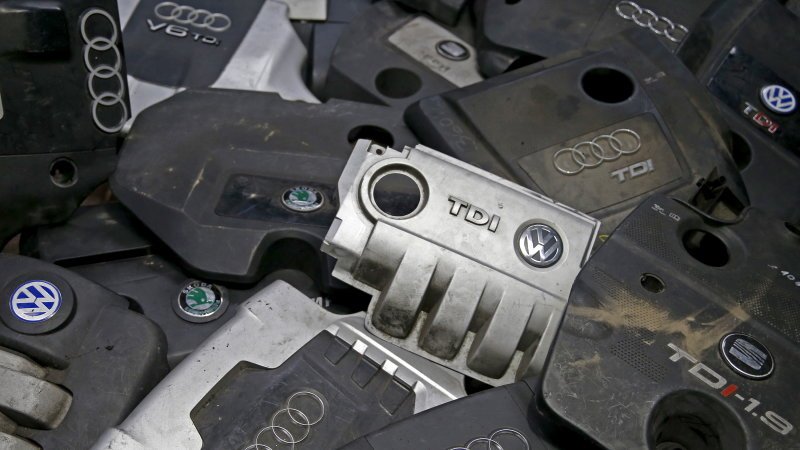German minister says software upgrades won't fix diesel emissions

German Environment Minister Svenja Schulze has told a newspaper she does not think software updates for diesel vehicles in Germany will be enough to solve air quality problems and that hardware retrofits paid for by the automakers are the only way to avoid driving bans.
The German car industry, which accounts for some 800,000 jobs in Europe's biggest economy, is struggling with a global backlash against diesel cars after Volkswagen admitted in 2015 that it had cheated U.S. exhaust tests.
Chancellor Angela Merkel has said she will do everything possible to avoid driving bans, but disagreements over how to tackle the problem of diesel cars with high nitrogen oxide (NOx) emissions threaten to further strain her coalition with the country's opposing political party, the Social Democrats (SPD).
Asked in an interview with Tagesspiegel to be published on Sunday whether measures already agreed on diesel would suffice to avoid driving bans, Schulze said, "I fear that in cities where the limits have been far exceeded — Munich, Stuttgart and others — software updates alone will not suffice."
She added, "The many measures from the immediate program for clean air, such as electrification of buses, are good and will help many cities but overall they aren't enough to solve the problem in cities that are particularly badly affected."
Schulze, of the SPD, said she was therefore campaigning hard for vehicles to get technical retrofits, adding: "In my view that's the only realistic way to avoid driving bans."
Asked whether the carmakers should pay for the hardware retrofits themselves, she said: "Yes — they are the ones who have caused this."
She said hardware retrofits were especially necessary in particularly badly affected urban areas where there was no other way to stick to NOx limits, adding this was likely to be around 20 cities.
However, German Transport Minister Andreas Scheuer, a member of the Bavarian CSU sister party of Merkel's Christian Democrats (CDU), opposes costly hardware retrofits, saying he is committed to meeting emissions targets using measures already being implemented.
Schulze said she and Scheuer were discussing the diesel issue intensely and both wanted Germany to have a strong automobile industry with many jobs. But, she said, it would only remain strong if it pioneered vehicles of the future, and China was the biggest future market.
"That country wants to improve the air in its cities. Soon no more dirty cars will be purchased there," Schulze said.
Related News
